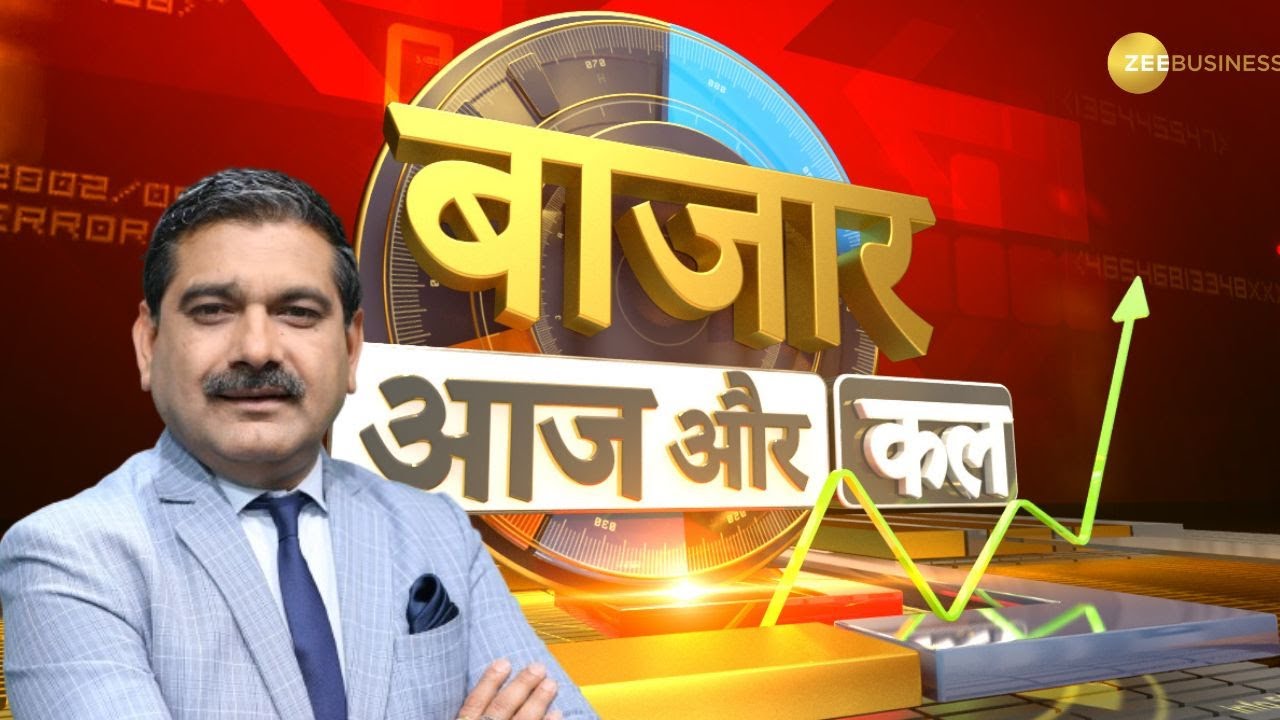Will The Stock Market Crash?
Summary
TLDRThe Indian stock market's soaring PE ratios and Sensex crossing 80,000 raise concerns about a potential bubble. Experts debate overvaluation, with retail investors driving the market and foreign investors showing confidence. High P.E. ratios in sectors like defense and green energy, and the impact of the budget on the market are discussed, highlighting the risks and opportunities for investors.
Takeaways
- 📈 The Indian stock market has seen significant growth, with the Sensex crossing 80,000 for the first time and a rapid increase in the number of retail investors.
- 🤔 There is a debate on whether the Indian market is overvalued, with some experts like Sanjeev Prasad of Kotak Institutional Equities warning of a potential bubble.
- 💼 The participation of retail investors, especially younger ones, has surged since the COVID-19 pandemic, leading to a bull run in the market.
- 📊 The P.E. Ratio of many Indian companies is high, with 104 companies having a ratio over 50, indicating that they might be overvalued.
- 💡 The report by Kotak Institutional Equities suggests that the current valuation of Indian companies is not sustainable, highlighting the risk of a potential market correction.
- 🌐 Foreign investors are also positive about the Indian stock market, contributing to its growth, with a significant increase in their investments in recent months.
- 💼 Companies are not investing as much due to fears of competition from large conglomerates like Adani and Ambani, which could impact future earnings.
- 🏦 Changes in government policy, such as allowing retirement funds to be invested in the stock market, have contributed to the market's growth.
- 🚀 The success of new stock brokerage apps has made it easier for people from smaller cities to invest in the stock market, further fueling the market's rise.
- 💡 SEBI has warned investors about the risks associated with small-cap stocks, advising careful consideration before investing in these volatile assets.
- 💼 The market's performance is influenced by various factors, including the budget, which can have both short-term and long-term impacts on investor sentiment and market stability.
Q & A
What is the current state of the Indian stock market according to Kotak Institutional Equities?
-The report by Kotak Institutional Equities indicates that the PE ratio of 104 companies is more than 50, suggesting that these companies are overvalued.
What does Sanjeev Prasad, CEO of Kotak Institutional Equities, think about the Indian market?
-Sanjeev Prasad believes that the Indian market has gone insane, implying that the current valuations are not sustainable.
Why are companies not investing despite high profits?
-Companies are hesitant to invest due to the fear of competition from conglomerates like Adani and Ambani, who are often favored by the government for contracts.
What warning did SEBI give regarding investment in small-cap stocks?
-SEBI warned investors in March to invest in small-cap stocks after careful consideration, highlighting the risks associated with these stocks.
What milestone did the Sensex achieve on July 3, 2024?
-On July 3, 2024, the Sensex, which consists of 30 major companies in the Bombay Stock Exchange, crossed 80,000 for the first time.
What is the role of retail investors in the current bull run in the Indian stock market?
-Retail investors, particularly young ones, have significantly increased their participation in the stock market, driving the bull run. Their numbers have grown from 1 crore in July 2010 to 9 crore by April 2024.
How have new stock brokerage apps impacted the stock market?
-New stock brokerage apps like Zerodha, Angel One, Groww, and Upstox have made it easier for investors from Tier 2 and Tier 3 cities to participate in the stock market, contributing to the market's growth.
What is the significance of the Warren Buffet Indicator in relation to the Indian stock market?
-The Warren Buffet Indicator measures the ratio of the total market capitalization to the country's GDP. Currently at 1.02, it is higher than the historical average of 0.91, suggesting that the Indian stock market is overvalued.
What are the concerns regarding the high PE ratios of Indian companies?
-High PE ratios, such as those of companies like Zomato with a PE ratio of more than 500, indicate that investors are paying a premium for stocks that may not be justified by the companies' earnings, raising concerns about sustainability.
How does the government's budget impact the stock market?
-The budget can have both short-term and long-term impacts on the stock market. Positive budget announcements can boost the market, while negative ones or changes in tax policies, such as an increase in capital gains tax, can lead to a correction or a crash.
What advice is given to investors regarding their portfolio allocation in small-cap stocks?
-Investors are advised to limit their exposure to small-cap stocks due to their high volatility and unpredictable nature. It is recommended to maintain a fixed contribution to small caps in their portfolio regardless of market conditions.
Outlines

此内容仅限付费用户访问。 请升级后访问。
立即升级Mindmap

此内容仅限付费用户访问。 请升级后访问。
立即升级Keywords

此内容仅限付费用户访问。 请升级后访问。
立即升级Highlights

此内容仅限付费用户访问。 请升级后访问。
立即升级Transcripts

此内容仅限付费用户访问。 请升级后访问。
立即升级浏览更多相关视频

Bazaar Aaj Aur Kal |Tomorrow's Market Mood: Where Are the Profits Hidden?

E7: NVIDIA AI BUBBLE - We Can't Stay Quiet Any Longer

How SENSEX and NIFTY points are calculated? Why they change in real-time?

PE Ratio Explained (With Examples)

Stock Market Bubble: Cause for Concern?

Could Microsoft Stock Reach $1,000? | MSFT Stock Prediction | MSFT Stock Analysis
5.0 / 5 (0 votes)
